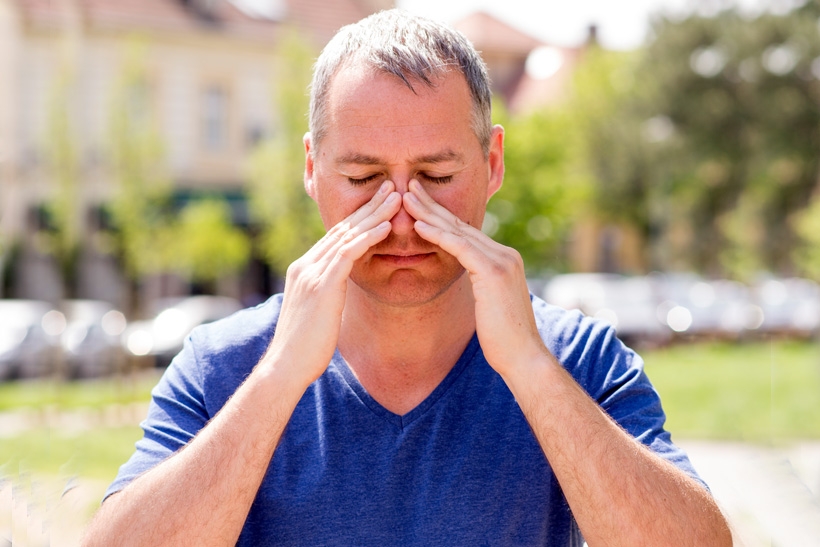Sinus problems can be miserable to deal with as congestion, pressure, post-nasal drip, problems sleeping, and more, are all potential side effects. One of the first steps toward getting relief is figuring out what’s causing the sinus problem in the first place.
In this month’s blog post, Dr. Cecil Yeung and Dr. Marcus Hershey here at Houston Sinus Surgery want to take a look at two of the more common sinus-related issues — sinusitis and seasonal allergies — and the key differences between them.
Basics of seasonal allergies
Approximately 24 million people in the United States have seasonal allergies, which also goes by the name of hay fever. As their name suggests, seasonal allergies develop during certain times of year, largely in response to pollen.
While pollen isn’t dangerous, when you have allergies, your body registers the substance as potentially harmful and fires up your immune system to fight off the perceived attack.
As a result, you can be left with:
- Nasal congestion
- Itchy, watery eyes
- Sneezing
- Coughing
- Sore throat
- Sinus pressure and pain
- Post-nasal drip
Your sinuses are involved, because they become inflamed in response to the flying irritants.
Basics of sinusitis
Sinusitis shares many of the same symptoms as seasonal allergies, especially in your nasal passages and sinuses. Unlike seasonal allergies, sinusitis is the result of an infection in your sinuses caused by a virus, bacteria, or fungus.
Some people are more prone to sinusitis, including those who have:
- Smaller-than-normal sinuses
- Deviated septum
- Nasal polyps
The two conditions can cross over because people who have seasonal allergies can be more prone to sinus infections. This is because inflamed sinus tissues can readily trap infection-causing agents.
Key differences between sinusitis and seasonal allergies
While the two conditions share many of the same symptoms, there are some key differences you should look out for.
Seasonal allergies
If your sinus congestion is accompanied by itchy, watery eyes, an itchy nose, as well as sneezing, the odds are good that you’re dealing with seasonal allergies.
Another attribute to consider is the timing of your sinus problems. If they tend to develop during high-pollen times, such as in the spring, each year, this may be pointing toward seasonal allergies.
Sinusitis
Indications that it’s more likely a sinus infection include:
- A thick discharge from your nose that’s yellow/green
- Bad breath
- Difficulty blowing your nose
- Pain in your cheeks or around your eyes (sinus headaches)
- Tooth pain
- Fever
Your treatment depends on whether you’re suffering from sinusitis or seasonal allergies. If you have sinusitis, we work toward clearing up the infection, first and foremost. If you have chronic sinusitis, we may recommend a minimally invasive sinus surgery.
If we determine that seasonal allergies are behind your problem, we work with you toward managing your allergies and the symptoms.
The first step toward relief is determining which problem is affecting your sinuses. To get started, call or book an appointment online with Houston Sinus Surgery today.




